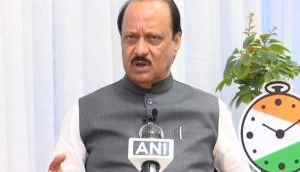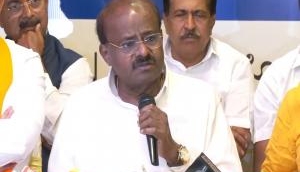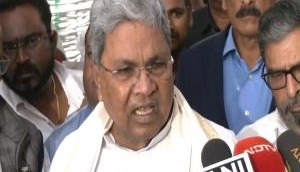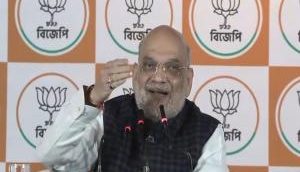
India’s 16 million girls trapped in prostitution today, may or may not be eligible for relief and their perpetrators may or may not be punished under India’s Trafficking of Persons (Prevention, Protection and Rehabilitation) Bill, 2018.
While the Bill mentions in its Statement of Objects and Reasons that “trafficking in human beings may be for sexual and physical exploitation,” sexual exploitation is not mentioned either in the Definitions section or in the criminal provisions.
This omission is in violation of India’s international obligations. In 2011, India ratified the Palermo Protocol (the Protocol to Prevent, Suppress and Punish Trafficking in Persons, Especially Women and Children) and therefore has an obligation to domesticate it. The definition says that human beings are trafficked for different types of exploitation, which “at a minimum includes the exploitation of the prostitution of others, sexual exploitation, forced labour or services, slavery or practices similar to slavery, servitude or the removal of organs.”
The Bill does refer to another law-Section 370 I.P.C for a definition of sex-trafficking. By referring to the definition of trafficking to another law and not explicitly mentioning sexual exploitation or ‘prostitution of others’ in the definition section, the Bill creates ambiguity.
Both the multiplicity of laws and vagueness of definitions will making the criminal justice process more complicated and harder to access for the victim. It will give more power to lawyers, police officers and judiciary to interpret the law as they please.
Combined with the draconian powers of surveillance, that the Bill gives to a new National Anti-Trafficking Bureau in the name of investigating trafficking cases and coordinating between law enforcement agencies and NGOs, this Bill is extremely dangerous for victims and activists alike.
Thousands of victims, many of them illiterate, will have to depend on the mercy of the thana (station) officer, to interpret the words ‘may be’ from the Bill’s Statement of Objects, to even be able to register a police complaint against their traffickers.
Even as per the statement of object in the Bill, the existing 16 million victims of sex-trafficking in India today, ‘may be’ listed in government data as victims of trafficking. Or not.
They are from the most vulnerable sections of society, Dalits, OBCs, Adivasis, Denotified Tribes, transgender, LGBT and other Minority groups. The Bill does not account for inequality based on sex/gender/caste inequality.
It places the blame for trafficking exclusively on “poverty, illiteracy and lack of livelihood options,” but omits to mention vulnerability caused by caste and gender, ignoring its own obligations to the UN Protocol, which asks countries to address gender and other vulnerabilities.
The Bill as it stands is not a comprehensive bill but a Labour, Marriage and Begging Trafficking Prevention Bill. Sadly, it violates the rights of even these sections. It violates the rights of beggars and may be misused against people engaging in inter-caste and inter-religious marriages. And it breaches the rights of those victims of trafficking who want non-shelter-based remedies.
In 2016, by removing millions of children in family based-enterprises and audio-visual entertainment from the definition of child labour, through amendments in the Child Labour Act, the government is able to show that Child Labour has come down in India. The National Crime Records Bureau revealed that rapes of children spiked by 82 % in the following year. These invisible children pushed out of schools and onto the streets, may be missing in data, but the continued to exist for the perpetrators.
The same may happen in the case of human trafficking. The Bill will enable the Modi government to manipulate data by using the ambiguity of definitions to leave out the vast majority of the existing 16 million victims of sex-trafficking. They will able to report that trafficking in human beings has come down, while the victims will continue to exist in flesh and blood.
(Wrriten by - Ruchira Gupta)







![BJP's Kapil Mishra recreates Shankar Mahadevan’s ‘Breathless’ song to highlight Delhi pollution [WATCH] BJP's Kapil Mishra recreates Shankar Mahadevan’s ‘Breathless’ song to highlight Delhi pollution [WATCH]](https://images.catchnews.com/upload/2022/11/03/kapil-mishra_240884_300x172.png)

![Anupam Kher shares pictures of his toned body on 67th birthday [MUST SEE] Anupam Kher shares pictures of his toned body on 67th birthday [MUST SEE]](https://images.catchnews.com/upload/2022/03/07/Anupam_kher_231145_300x172.jpg)






